Lots of parents find the idea of choosing an early learning and childcare (ELC) provider for their wee one a bit daunting, and might not know where to begin. So you’re not alone if you’re feeling a bit overwhelmed by the thought of choosing the place that’s right for your child. Here are some tips to help you make a decision.
What's available in my area?
All ELC settings need to register with the Care Inspectorate. This ensures that they’ll provide a safe, nurturing environment for your child. You can check out the Care Inspectorate website to find a list of providers near you.
It can be really helpful to visit a few local nurseries, childminders or playgroups, as it’s a good way to get a feel for a place. If you want to do this, phone ahead to make an appointment, so they can organise for one of their staff to show you around, chat to you and answer any questions you have. You can also find out more about the provider by viewing their most recent inspection report.
Some ELC providers might be in high demand! So, you should always check with them about enrolling your child, as you might need to put your wee one’s name on a waiting list. If you are applying for your child’s funded hours, then different local authorities have different application processes and timings and you might have to apply quite far in advance, so it's best to check with them. You can find contact details on our page about funded hours here.
We’ve put together a list of questions that have helped other parents when making their decision, and that might be helpful to ask on a visit.
Choosing the right setting
There are some general questions that are useful to ask yourself before deciding on the type of provider that will suit you and your child’s needs.
- What type of ELC setting do I think my child will feel most comfortable and secure in? One with big rooms with lots of children to play with or smaller rooms with fewer children? A homely setting, or one with different areas to explore, or an outdoor setting?
- What type of ELC setting will suit our family life best? One that’s open all year or just during term time? Are extra sessions or hours available if needed? If your wee one has difficulty settling in, it might make sense to pick a place that offers year round care to minimise disruption to their routine.
- Do I think my child will thrive more in a specialised setting such as a forest nursery or one that provides care and learning via Gaelic medium?
- What times would work best for my child and family? Settings might offer part days or full days, some might offer a breakfast club or start a bit earlier.
Choosing the right environment
It’s helpful to know a bit more about the environment your wee one will be spending their time in during the day and whether its suitable for them. Some questions you might want to consider are:
- Can they show me around the space?
- Are the staff warm and welcoming, do I feel comfortable and valued?
- How much time will my child spend outside? As well as spending time in the garden, do they get the chance to explore local outdoor spaces?
- My child isn’t walking yet. Is there an outdoor area where they can still explore and move about?
- Is there somewhere quiet and comfortable where my child can sleep or rest safely?
Ensuring it’s a safe environment
A big priority for parents is safety and it’s important you feel confident that your child is completely safe and secure when they’re spending time apart from you. The Care Inspectorate wouldn’t allow a setting to operate if the environment wasn’t safe, but for peace of mind, you may want to find out the following:
- Do they have a secure entry system?
- How will they ensure that my child is kept safe, and that no-one can collect them without my permission?
- If travelling, especially with a childminder, what transport will they use and would I need to provide my own car seat?
What and how they’ll learn
It’s important to know what day to day activities your wee one will be doing and how they will help them to develop, so you might want to find out:
- What does an average day look like? What will my child do when they come here?
- How does the setting make sure that children are able to learn through play? How much of the time do they get to choose activities for themselves? Including being able to access the outdoors themselves?
- How does the setting make sure the activities will reflect my child’s interests?
Socialising with other kids
Who your child spends time with and makes friends with is a big part of their learning, so you might want to know:
- What opportunities will my child have to play with and learn from children of different ages?
- Will my child spend time with the same children each day to allow them to make friends?
- Will they be able to spend time with a sibling who’s in the same setting?
Ensuring they're well cared for
If your child’s emotional needs are met, it can be a big weight off your mind, especially if this is the first time your child will be spending time away from you. So, you might want to consider:
- Do they have a settling in period before they start and what will that be like?
- What do staff do to help my child get settled when they first start?
- Will my child have a key worker? And how much time will he/she spend with that person and what will be their role?
- What will happen if my child’s keyworker isn’t there?
- How will staff comfort my child if they get upset?
Mealtimes
Any meals that the setting provides should be nutritionally balanced, meeting the guidance provided in Setting the Table.
You’ll probably still want to know a bit more about the type of foods and snacks that will be served to your child to make sure it’s healthy and will give them energy through the day, so you might want to ask:
- Do they provide meals and snacks?
- What does a typical week’s menu look like?
- My child has an allergy/intolerance or a dietary preference. Do they offer alternative meals and snacks to meet their needs?
Knowing more about the staff
It’s important to know that your child is being well cared for by qualified people. Anyone working with children must hold a certificate of disclosure to work with children, but some other questions to consider are:
- What are the adult/child ratios in the room where my child will be?
- How do they make sure that children are able to form strong bonds with these adults?
- What relevant training and qualifications do the staff have?
- What sort of first aid training do staff have? Are they trained in paediatric first aid? Has the setting achieved Millie’s Mark?
Keeping you in the loop
Kids get the most out of ELC when their parents are involved and in touch with the staff. It’s great to be kept up to date with all the goings on with your child and to know how they’re getting on. So, you might want to consider:
- Who will I be able to talk to each day to hear about how their day was, whether they have slept, eaten and how many wet/dirty nappies they have had?
- How do they keep me informed of the progress that my child is making with his/her learning and development?
- Who do I talk to if I have concerns or questions about my child’s development and/or the quality of care they receive?
- How will the setting support me, as parent/carer, to help my child's learning and development – both at home and in the setting?
Additional support needs
Finding the right setting when your wee one has additional support needs can feel quite overwhelming but don’t worry, there are lots of specialist settings out there that can help your child thrive. When trying to decide which is the best place for your child, here are some things that might be helpful to find out:
- How do they identify if a child has additional support needs?
- Are you able to, with help from the local authority, access any specialist support from other professionals (such as a speech and language specialist, educational psychologists or nurses)?
- Do any of the staff in the settings have specialist training to support children with specific needs?
- Would the setting be able to make any required adaptations to the physical environment to ensure my child can be fully included?
Here's more information about how children with additional support can get the most out of ELC.
Twins, triplets and more
If you have twins, triplets or more, there are some extra questions you might want to explore:
- Does the nursery have a ‘multiples policy’? It’s important they understand that your twins or triplets are individuals, and should be assessed individually.
- Do you want them to be in the same room or group at nursery, or would you rather they were separated? There’s no ‘right answer’ to this – it’s entirely up to you and the personalities of your children.
You can find more tips and advice on the Twins Trust website.
More practical questions
You might want to ask some more practical questions about everything from sickness arrangements to help that’s available with potty-training. Some of these could include:
- What are their operating hours, and what are the holiday and sickness arrangements?
- I would like my child to go to nursery for part of the day but spend the rest of the day with a childminder; would this be possible?
- Do they offer funded places for 2 year olds and for 3 and 4 year olds?
Choosing a childminder
All childminders in Scotland have to register with the Care Inspectorate and have a Care Inspectorate registration certificate, so you should always ask to see it. You can check whether a childminder is registered by searching for them on the Care Inspectorate website.
The Care Inspectorate carries out inspections to ensure that childminding services provide safe, high-quality care. This includes the following things:
Care
Childminders must provide a safe and nurturing and environment. They should build positive relationships with the children in their care and be responsive to each child’s needs.
Play and learning
Childminders should provide opportunities for play and learning that support children’s development. This includes age-appropriate activities and promoting social, emotional and physical skills.
Food and nutrition
Not all childminders will offer meals but if they do they should provide nutritious meals and snacks, catering to individual dietary needs and promoting healthy eating. They should have safe food handling practices.
You can find out more about how the Care Inspectorate ensures that childminding services are high quality here and download a helpful leaflet about choosing a childminder here.
Things you might want to ask a childminder
If you’re thinking about using a childminder, there are some additional things you might want to consider such as:
- How many other children do they look after? What ages are they and when are they there?
- Do they take the children to other organised sessions, like playgroups?
- Do they give the children opportunities to be outdoors?
- Are they a member of any of the childminder organisations?
- What happens if the childminder is ill?
Parents can now give feedback at any time about childminders they’ve used by providing details to the Care Inspectorate. You can find out more about this by asking your childminder and on the Care Inspectorate website.
 Activities & Play
Activities & Play Behaviour
Behaviour Childcare
Childcare Development & Growing Up
Development & Growing Up Family, Friends & Relationships
Family, Friends & Relationships Feeding Your Baby
Feeding Your Baby Food & Eating
Food & Eating Health & Safety
Health & Safety Mental Health & Wellbeing
Mental Health & Wellbeing Money & Work
Money & Work Online Behaviour & Safety
Online Behaviour & Safety Pregnancy & First Days
Pregnancy & First Days School & Education
School & Education Sleep
Sleep

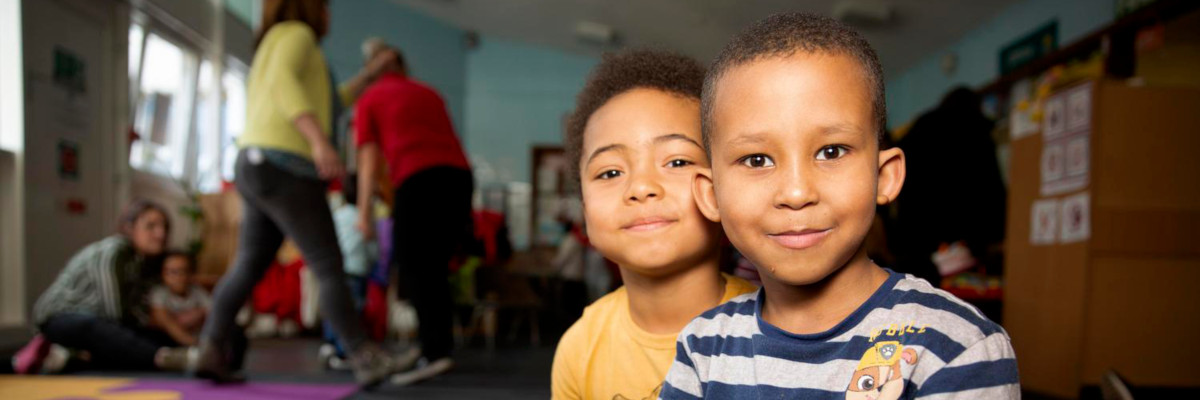
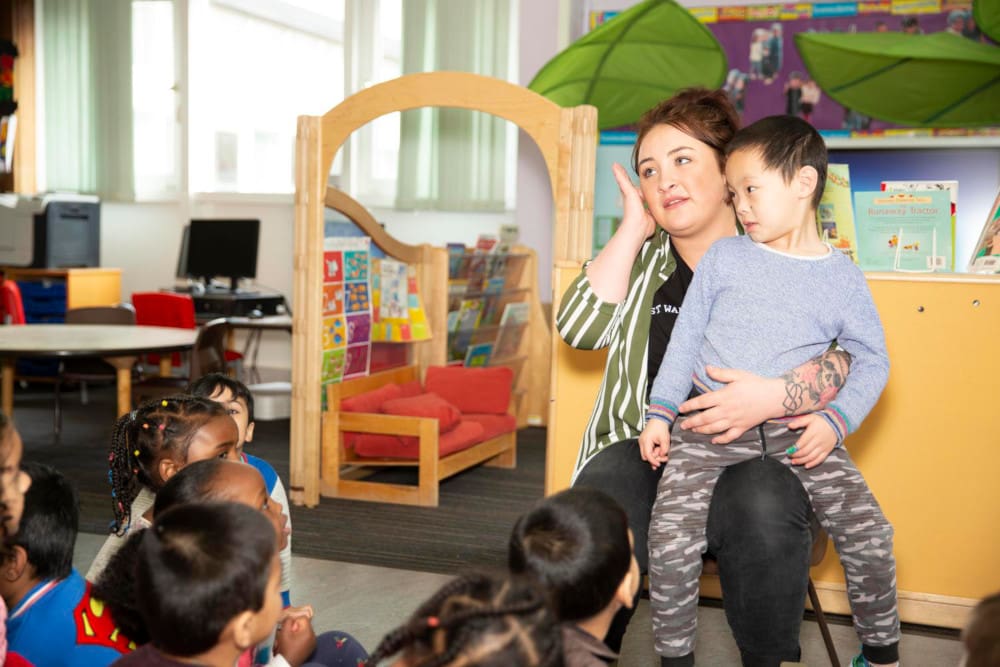
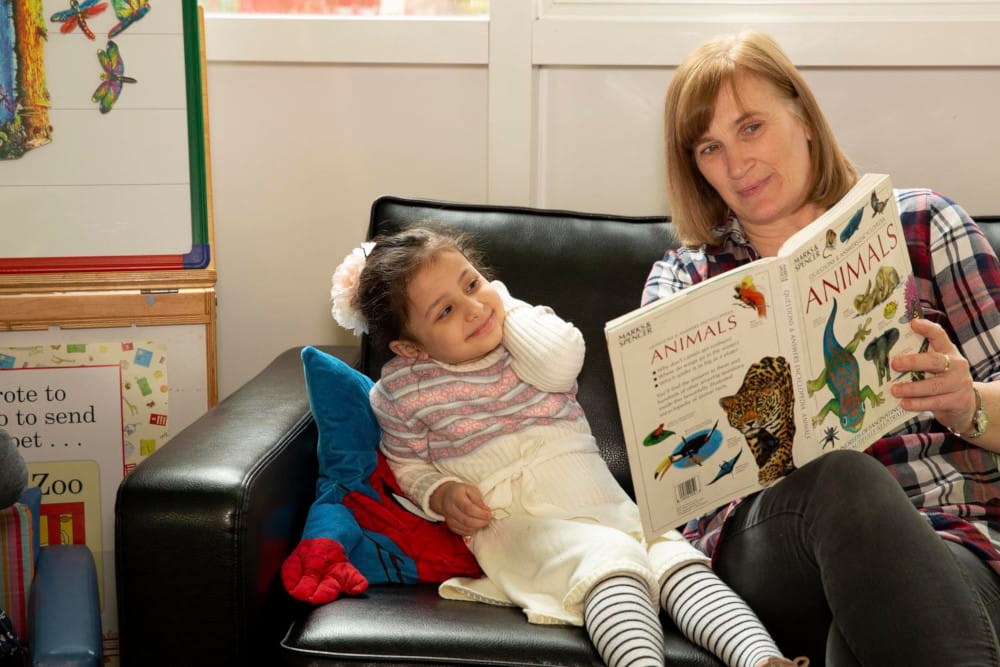
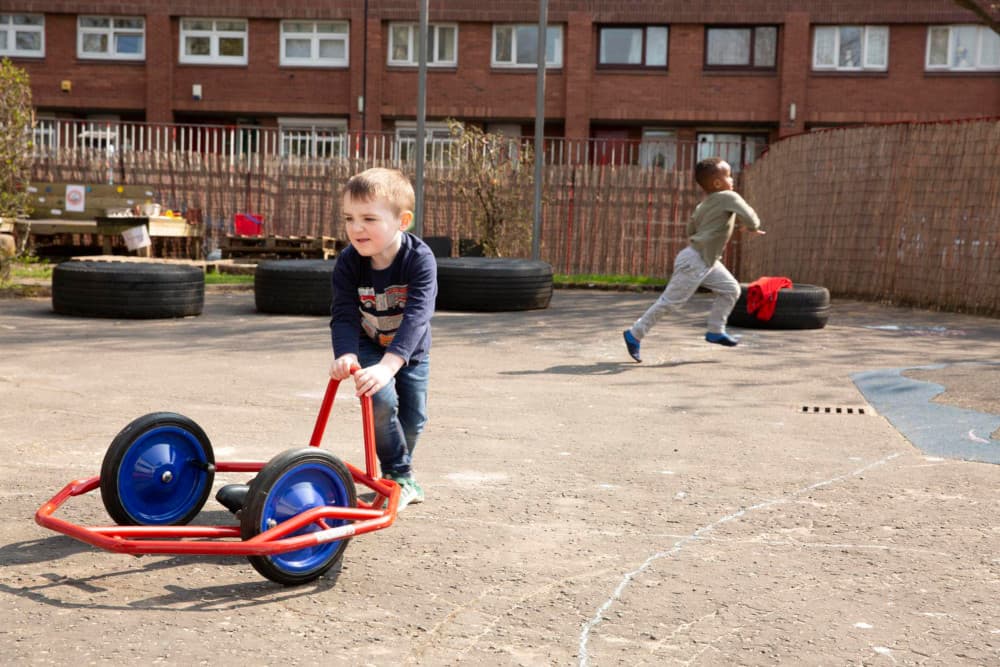
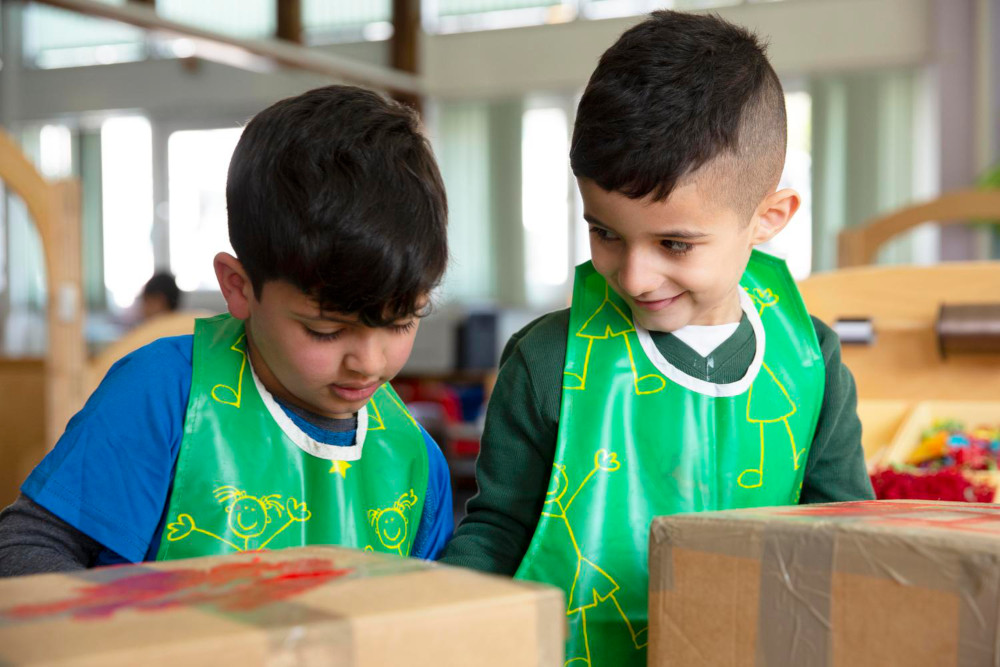

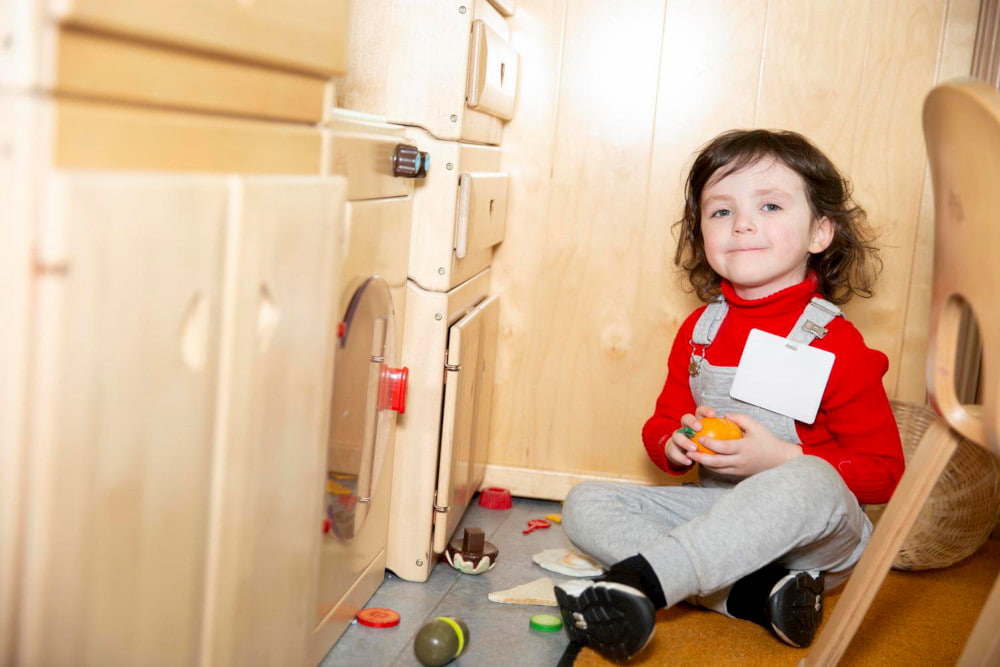
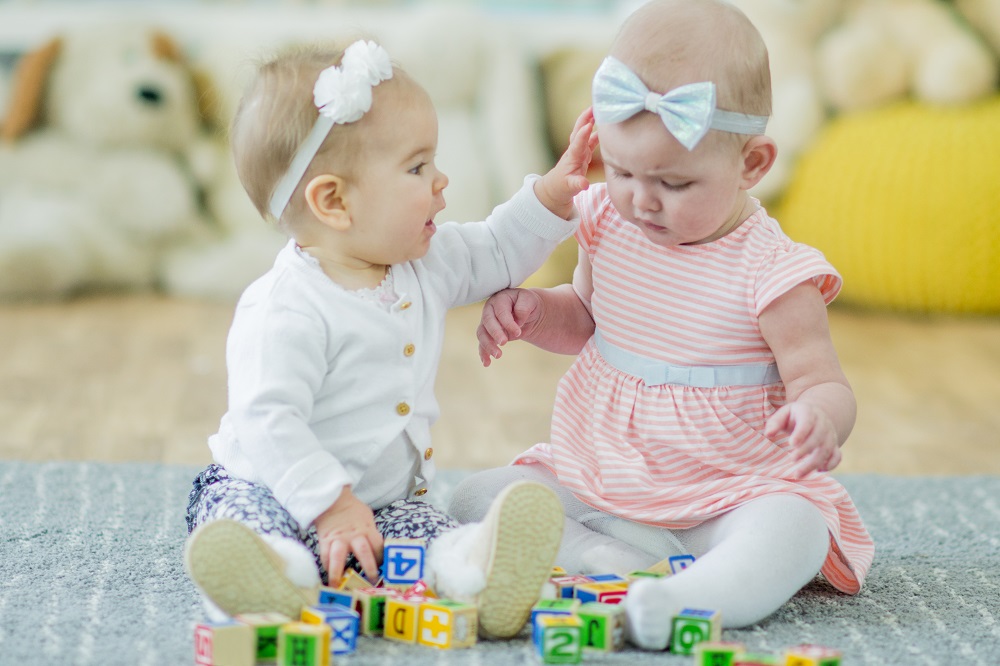
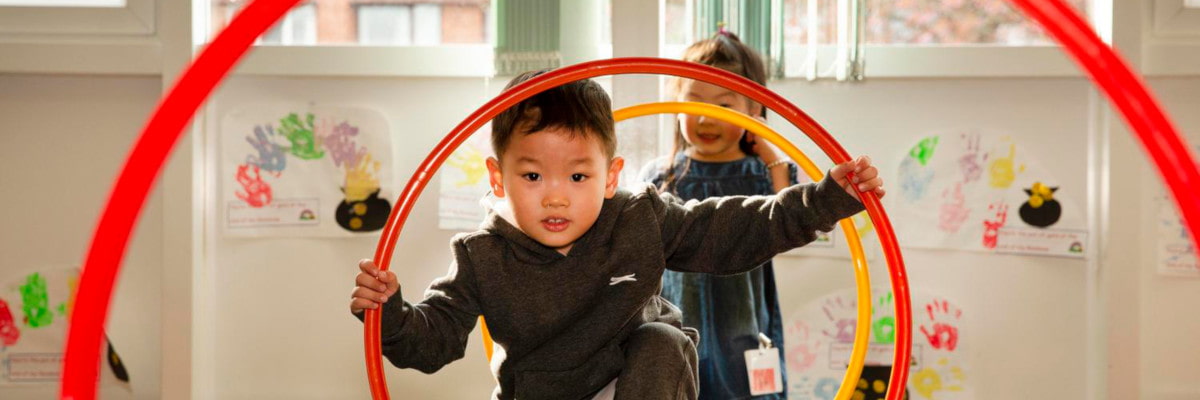
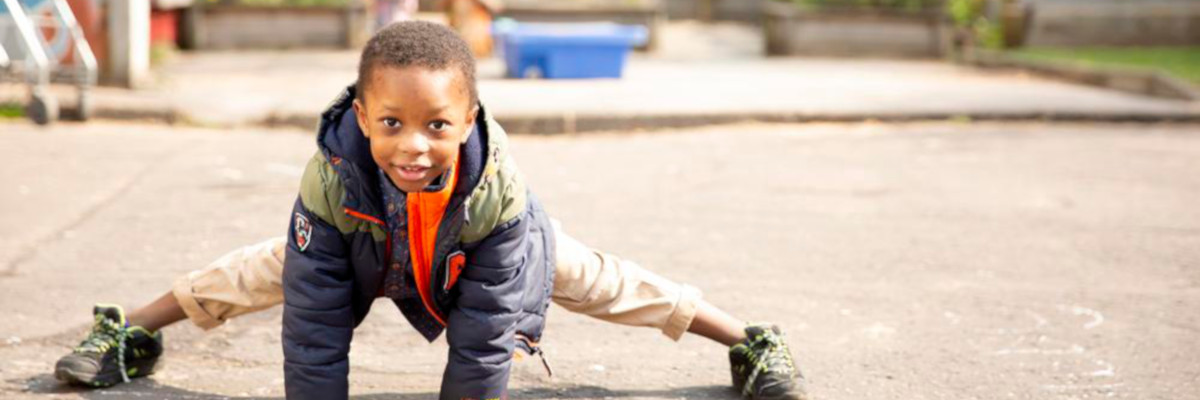

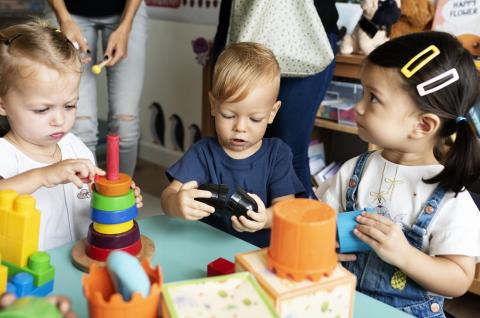


 Activities & Play
Activities & Play
 Money & Work
Money & Work